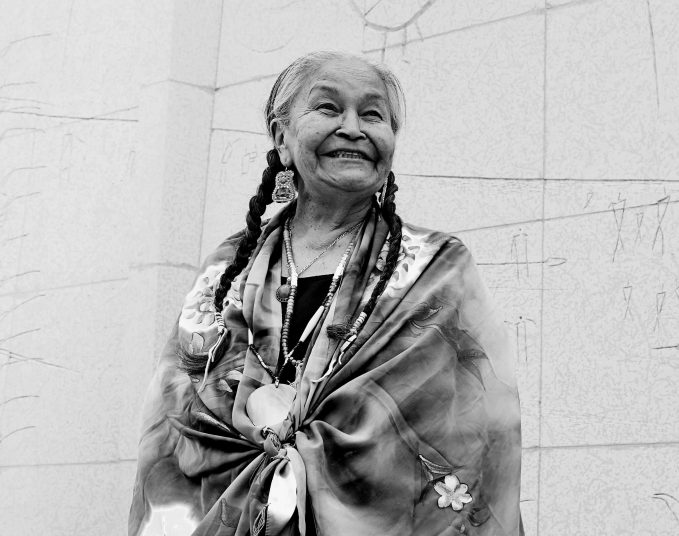Months after exploding onto Ontario’s gambling scene, privatized, for-profit sports betting is coming to Alberta, and experts are cautioning about the risks of easier gambling and more interactive products like in-play wagers.
Albertans got a sense of how much online gaming has flourished during the Edmonton Oilers’ playoff run, when gambling ads suddenly dominated local airwaves. In addition to traditional TV ad spots, online sportsbooks demonstrated deep integration in live NHL broadcasts. Intermission content switched between traditional sports analysis to paid promotions from online sportsbooks. Many of them were produced to look like new analytical segments, with on-air talent discussing odds, wagers and betting options.
Alberta’s gaming regulator, Alberta Gaming, Liquor & Cannabis (AGLC), will soon release the results of a competition to welcome the first two private entrants to Alberta’s sports betting market. Until now, it’s been the exclusive territory of the Sports Select game operated by the non-profit Western Canadian Lottery Corporation and the AGLC’s online gambling website, PlayAlberta. Private companies registered to lobby the province about single-event and online sports betting regulations include American Wagering, BetMGM, The Stars Group, The Score Media and Gaming, PointsBet and Oilers Entertainment Group, suggesting they’re all in the hunt for a licence.
In the hunt for a licence are American Wagering, BetMGM, The Stars Group, The Score Media and Gaming, PointsBet and Oilers Entertainment Group.
AGLC declined an interview request for this story but, in a statement, described the expansion of the gaming market as “an initial step that allows us to bring this service to sports fans in Alberta sooner and monitor the challenges other jurisdictions are currently facing before we consider next steps.” Ontarians can currently choose from about 40 online sportsbooks.
Ray Reshke, executive director of the Alberta-based non-profit Problem Gambling Resources Network, said Alberta’s gradual approach is prudent. “I think it’s a responsible move on their part,” he says. His group hasn’t yet seen an uptick in people seeking help for online gambling addiction, “but they’re coming. With more and more gambling opportunities, more people who are at risk are probably going to participate. So it is a concern.”
Robert Williams, a professor in the Faculty of Health Sciences at the University of Lethbridge and research coordinator for the Alberta Gambling Research Institute, said sports betting is relatively uncommon in Canada compared to lottery tickets, slot machines and VLTs. Still, the novelty of new gambling opportunities might lead to a small jump in problem gambling.
“Any time a new form of gambling is introduced, you tend to have a little bit of hoopla and overexuberance associated with it, more people participating and more people harmed,” he said, but because such a small percentage of people engage with in-game sports betting, he says the uptick will not be significant.
Williams said problem gambling in Canada has declined over the last 20 years as people have become more aware of the dangers. Even so, he criticized the recent bombardment of sports betting advertisements.
“Advertising increases patronization of a product, but most worrisome is that it has a disproportionate impact on people trying to give up the habit. This is partly why you’re not allowed to advertise tobacco, you’re not allowed to advertise cannabis, and there are very restricted circumstances where you can advertise alcohol,” he said, “So it’s very inconsistent that anything seems to go for gambling, which is just as addictive.”
Gaming platforms providing on-air sports commentary blur the lines between factual sports analysis and gambling promotion. Last spring, Hockey Night in Canada broadcasts featured a betting analyst employed by DraftKings, regularly updating viewers on the latest odds.
Fiona Nicoll, a professor at the University of Alberta and director of research for the Alberta Gambling Research Institute, says there needs to be a “clear boundary” between wagering offers and sports commentary.
When those lines aren’t clearly marked, people are “more likely to be persuaded” to gamble, says Nicoll. “You’re already excited by the game, and then gambling appears as a way to enhance the excitement and the experience,” she says. “The excitement and enjoyment of sports can be compromised when we have a wallpaper of gambling promotions in venues and broadcast on media.”
A key feature of the single-event betting these companies offer is in-play betting. Nicoll says these “innovative products” open up “new possibilities for corruption.”
“It’s pretty hard to fix the outcome of a match, because there are so many moving pieces, but we’re talking about a particular play within the match,” she says.
Nicoll and Reshke caution that online gambling is also creeping into the video gaming world, where young people are particularly vulnerable. Addiction to gaming, and gambling, are both recognized as behavioural disorders by the American Psychological Association. When the AGLC announced it was seeking proponents to build out Alberta’s online sports gaming market, it also said it would consider “additional opportunities as the market continues to develop.”
“This is important because it relates to young people’s gambling experience through video games,” Nicoll says. “The boundaries between sports and video games and gambling are much more porous than they have ever been.”
“We’re seeing a remarkable increase in the number of young people gambling, and it’s not gambling money, per se, but it’s buying in-app purchases in video games,” Reshke says, adding his group does gambling awareness presentations at junior and senior high schools.
More than 50 per cent of the students who respond to evaluation forms his group hands out at the schools report having purchased in-app loot boxes to advance in a video game.
Savvy AF. Blunt AF. Edmonton AF.




